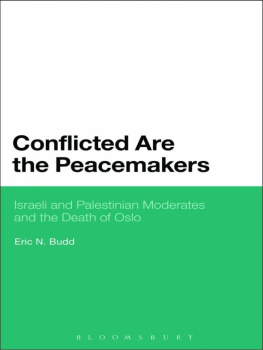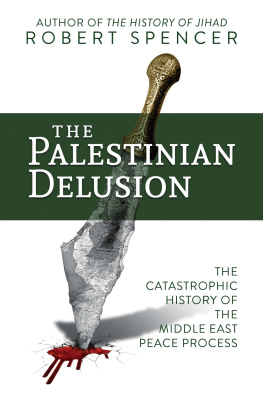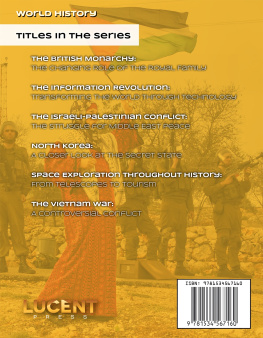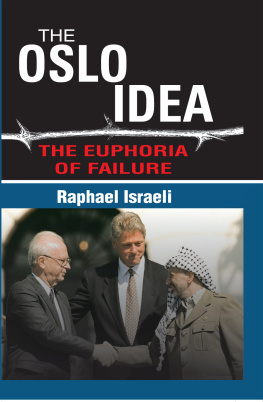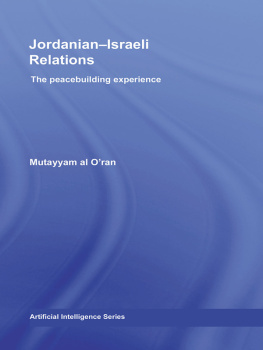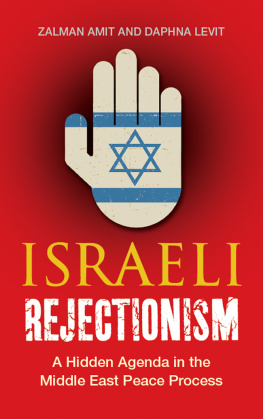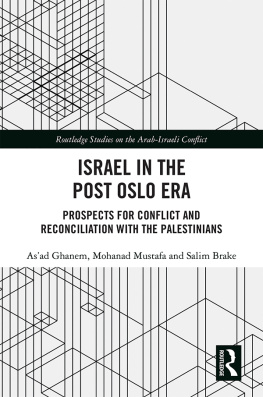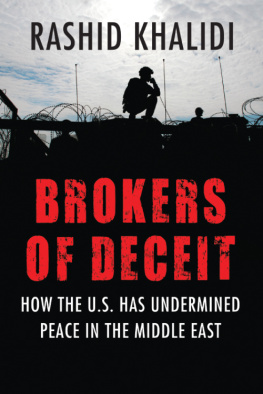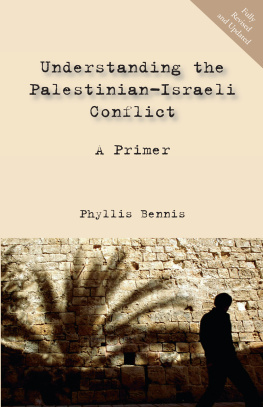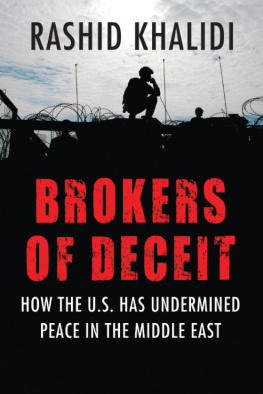Conflicted Are the Peacemakers
Conflicted Are the Peacemakers:
Israeli and Palestinian Moderates and the Death of Oslo
Eric N. Budd
Bloomsbury Academic
An imprint of Bloomsbury Publishing Plc
175 Fifth Avenue New York NY 10010 USA
50 Bedford Square London WC1B 3DP UK
www.bloomsbury.com
Eric N. Budd, 2013
All rights reserved. No part of this book may be reproduced, or transmitted in any form or by any means, electronic or mechanical, including photocopying, recording, or any information storage or retrieval system, without prior permission in writing from the publishers.
Library of Congress Cataloging-in-Publication Data
Budd, Eric N., 1963
Conflicted are the peacemakers : Israeli and Palestinian moderates and the death of Oslo / Eric N. Budd.
pages cm
Includes bibliographical references and index.
ISBN 978-1-4411-1319-1
1. Arab-Israeli conflict1993Peace. 2. Peace-buildingMiddle East. I. Title.
DS110.76.B83 2012
956.94054dc23
2012027354
ISBN: 978-1-4411-1319-1
Contents
Acknowledgments
This book would not have been possible without the support and assistance of a number of associations, institutions, and individuals. Several of the chapters were presented at various annual meetings of the Northeastern Political Science Association, the International Studies Association, the Midwest Political Science Association, and the Middle Eastern Studies Association. Thanks to the different discussants and audience members, the arguments in the book were strengthened and fine-tuned.
Two of the chapters were presented at the first and second Pathways to Peace Conference hosted by Central Connecticut State University. In addition, an initial draft of was presented at Muhlenberg College. The faculty and students at Muhlenberg College provided an excellent forum for me to present my work and gave me a number of important insights that helped me to develop the book.
At Fitchburg State University, I have received a great deal of support from the administration, faculty, and students. A Research Fellowship from Fitchburg State enabled me to concentrate on the research, while also providing me with some funding for a research assistant and money to travel to Washington DC to conduct further research. I presented my initial thoughts on the role of the moderates in the peace process as part of Fitchburg States Harrod lecture series in a talk entitled, Where Have All the Moderates Gone? The Elusive Search for Peace in the Middle East. Bob Foley, Linda LeBlanc, and the entire staff at the Fitchburg State library have been extremely helpful, never complaining when I flooded them with interlibrary loan requests.
My department at Fitchburg State offers the perfect combination of collegiality and the opportunity to interact with historians, economists, as well as political scientists. Our chair, Paul Weizer, and secretary, Karen Valeri, are always extremely supportive and helpful. My students in Introduction to Peace Studies (and other classes) endured my interjecting the Israeli-Palestinian peace process throughout the lectures and class discussions and provided me with lots of insights as I developed the manuscript. Similarly, John Chetro-Szivos, with whom I co-teach Introduction to Peace Studies, has been an invaluable colleague and friend.
This manuscript benefitted from the kindness and generosity of lots of colleagues and friends. Joshua Spero, Rene Reeves, Sean Goodlett, Joe Moser, Jessica Glover, Mohsin Hashim, Kevin Costa, and Aruna Krishnamurthy all commented on the chapters and provided a number of key insights and suggestions. Ghaith al-Omari, Aaron David Miller, and Yezid Zayigh spent a lot of time with me when I interviewed them, and their insights are an invaluable addition to the book. Thanks to the editing skills of Elena Cordova, this book is not the stylistic mess I had originally presented to her. Marie-Claire Antoine of Bloomsbury has been a pleasure to work with, and thanks to her that this project came to fruition. Without all the love and support of my family, friends, and relatives this manuscript would never have been possible. Pureza, Linnea, and Josh provide all the love and happiness anyone could ever hope for, and more. Finally, this book is dedicated in loving memory of my mother, Helen G. Budd, and in honor of my father, Elihu M. Budd, with thanks for all their love and support over the years, and for instilling in me a deep commitment to peace and social justice.
Introduction: The Moderates and the Elusive Search for Peace
This is a type of terrorism used by lunatic people who are prepared to strap explosives to their bodies, or place them in cars, in order to kill Israelis, and in order to eliminate the chance for peace in the most complex conflict which has existed between us and the Arab worldthe conflict between us and the Palestinians.
Yitzhak Rabin
Israeli extremism has succeeded in pushing us into a circle of action and reaction and drowned us in a bloody situation, creating a climate in which it is difficult to give precedence to the political and negotiating aspect in managing the conflict.
Mahmud Abbas
I am forced to say that the extreme right in Israel is dancing on the blood (shed by) the Islamic extremist terrorist murderers, and trying to turn Israeli victims into a force against the (peace) accord.... The extremist murderers of the Islamic Jihad and Hamas are the tools of the extreme right wing in Israel.
Yitzhak Rabin
As soon as the shock of the (Rabin) assassination was over, the forces of extremism on both sides of the conflict were concluding an unwritten and unholy alliance to undermine the peace process. They revived all the factors of fear, hatred, and hostility between two peoples that were still feeling the beginning of the road to close the page of war and violence and to open a new page of co-existence, peace, and good neighborliness.
Ahmed Qurei
Violence attributed to the Israeli far right as well as Hamas and/or the Islamic Jihad on the Palestinian side, is seen as having undermined popular support for the Oslo peace process and as having stymied any further momentum as well. Extremists serve as spoilers, doing everything within their power to disrupt the peace process. With trust in the other side at a minimum, the extremists are able to play upon the lingering doubts of whether there really is a partner for peace on the other side. By stoking these doubts, the extremists are able to stymie the peace process by creating a self-fulfilling prophecy, where peace is seen as impossible, and there is not a partner for peace.
Extremist violence on both sides leads each partner to come to doubt the other. According to Barry Rubin:
[I]ncessant bombings and shootings undermined the peace process confidence-building elementIsraelis believed Palestinians still wanted to destroy Israel and that the Palestinian Authority was unwilling or unable to stop attacks. Palestinians thought Israel had no intention of relinquishing territory or accepting a Palestinian statewhen Israel postponed negotiations or closed territories it was seen as Israels way of avoiding its commitments. By mobilizing people to action, extremist ideas had becomeat least partly and temporarilya self-fulfilling prophecy.
Extremist violence is very effective at preventing any further progression of the peace process. In the face of extremist violence, the moderates lose control over the peace process, which creates room for the extremists to set the agenda. This dynamic is what is known as

